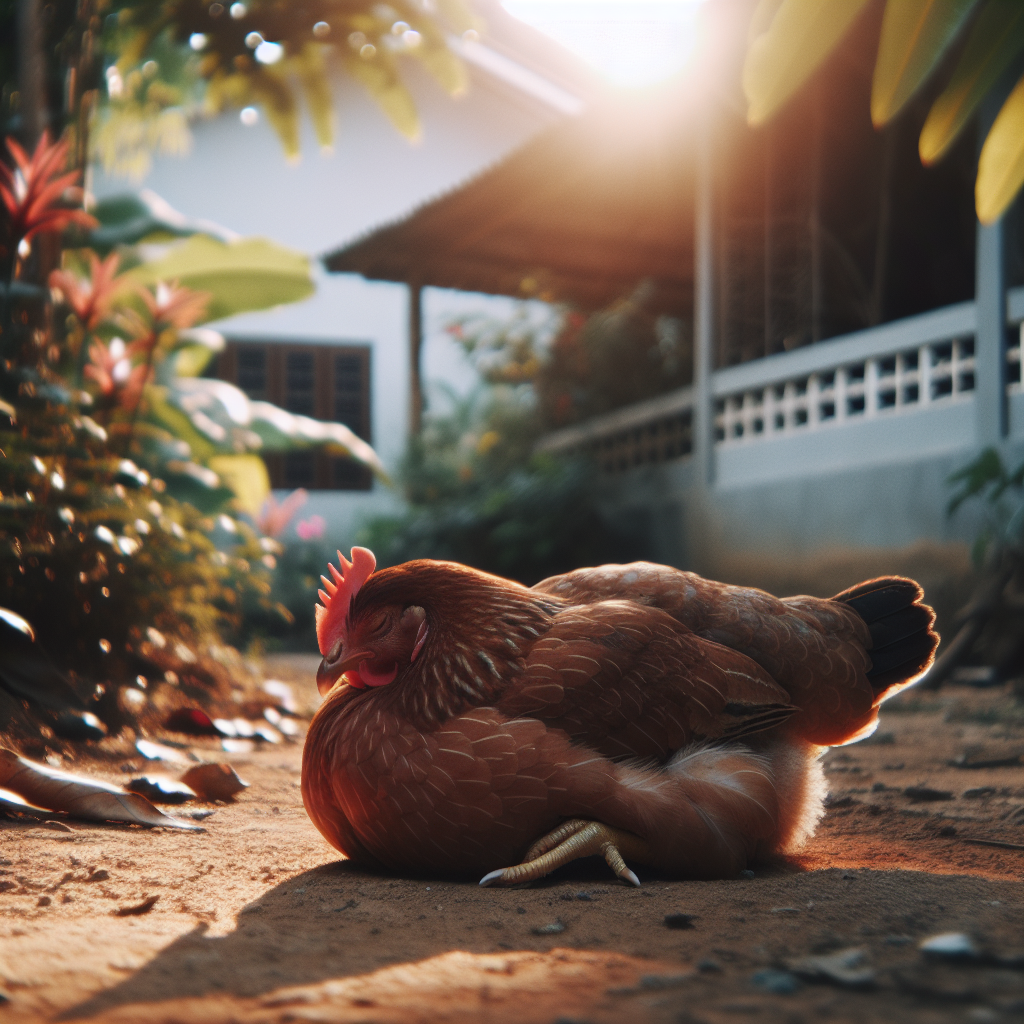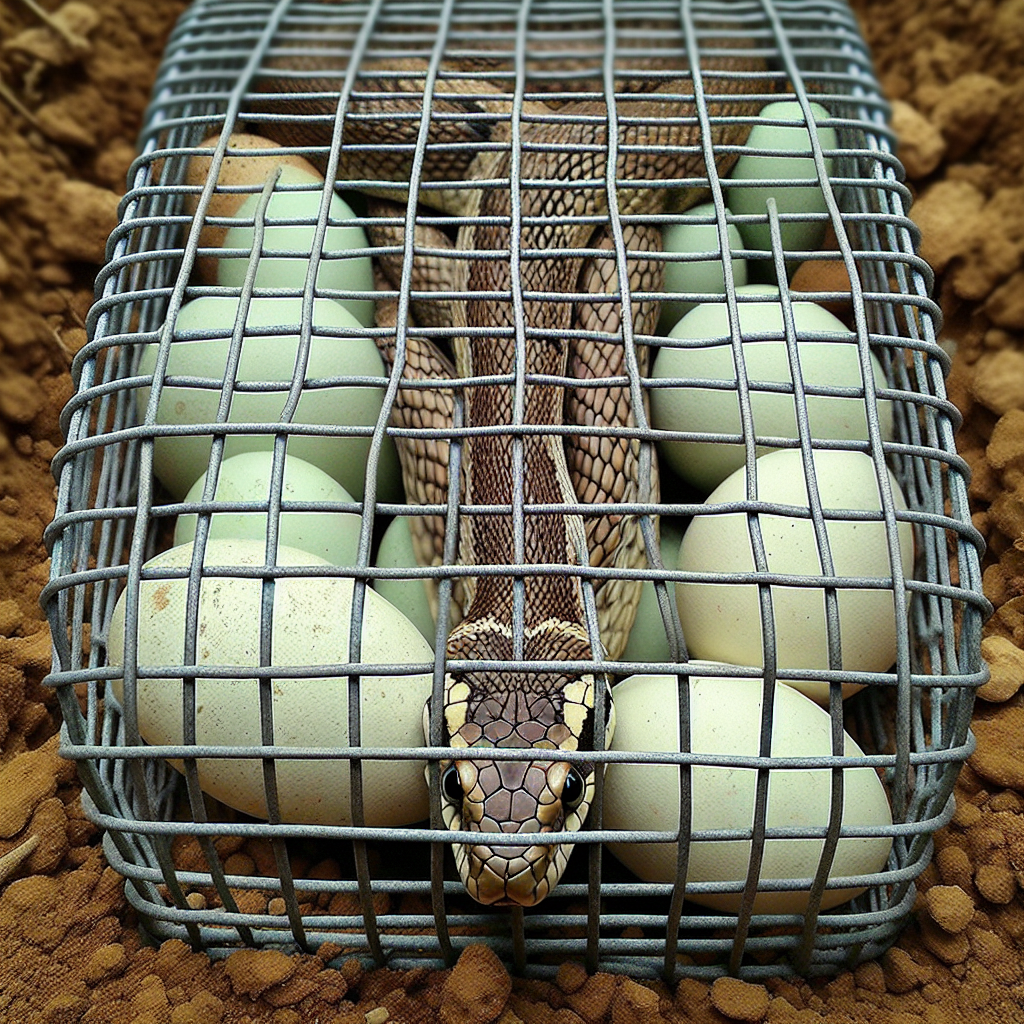In the quest to protect our beloved chickens from potential predators, many wonder if there are effective natural deterrents or repellents available. Whether you have encountered coyotes, raccoons, or even neighborhood cats eyeing your flock, finding a solution that is both safe and reliable is the top priority. This article explores the various natural options available and delves into their effectiveness in keeping predators at bay. So put your worries aside and let’s discover the secrets to safeguarding your chickens from harm!
Types of Chicken Predators
Local Wildlife
Local wildlife such as foxes, raccoons, opossums, and skunks are often common chicken predators. These animals are primarily active during the night and can pose a significant threat to the safety and well-being of your chickens. Their ability to dig, climb, or squeeze through small openings makes it important to have effective predator deterrent measures in place.
Domestic Animals
Even though our beloved pets are usually friendly and harmless, dogs and cats can still pose a risk to chickens. Dogs, especially those with a strong hunting instinct, may be tempted to chase or attack chickens. Cats, on the other hand, may see chickens as prey. It’s crucial to ensure that pets are properly introduced to chickens and that they do not have unsupervised access to the coop or run area.
Birds of Prey
Birds of prey such as hawks, owls, and eagles are skilled hunters with keen eyesight and powerful talons. They can swoop down and grab chickens, causing significant harm or even killing them. These predators are most active during the day, posing a different set of challenges compared to nocturnal predators. Protecting chickens from birds of prey requires specific predator deterrent strategies.
Rodents
While rodents like rats and mice may seem like relatively small threats, they can still cause harm to chickens and their eggs. Rodents often raid chicken coops to steal feed and can also gnaw at coop structures, compromising their integrity. Additionally, they are carriers of diseases that can be transmitted to chickens. It’s important to address any rodent infestation promptly to protect your flock.
The Importance of Predator Deterrence
Protecting Livestock
Effective predator deterrence is essential for safeguarding your valuable livestock. Chickens are not only a source of food but may also provide income through the sale of eggs or breeding stock. By implementing predator deterrent measures, you can minimize the risk of losing chickens to predators and protect your livelihood.
Minimizing Stress and Loss
Predator attacks can cause immense stress to chickens, affecting their overall well-being and reducing their quality of life. With proper predator deterrence, you can create a safe and secure environment for your flock, reducing their stress levels and allowing them to thrive. Minimizing losses due to predator attacks also prevents the disruption of your chicken-keeping routine and the emotional distress that comes with seeing your beloved birds harmed or killed.
Preserving Chicken Health
Predators can transmit diseases to chickens, leading to various health issues. A compromised immune system and physical injuries from predator attacks leave chickens more susceptible to illnesses. By preventing predator access to your chickens, you can maintain their health and minimize the need for costly veterinary treatments.
Maintaining Egg Production
Predator attacks can disrupt egg production in several ways. Chickens that are stressed or injured are less likely to lay eggs consistently. Moreover, the loss of chickens due to predation reduces the size of the flock, decreasing overall egg production. By implementing predator deterrent strategies, you can ensure a stable environment for your chickens and maintain a steady supply of fresh eggs.
Common Natural Predator Deterrents
Guard Animals
Using guard animals is an effective way to deter predators from approaching your chickens. Dogs, llamas, alpacas, geese, and guinea fowl have natural protective instincts and can quickly detect and deter potential threats. Their presence alone can be enough to deter many predators, but it’s essential to properly introduce and train these animals to ensure they are compatible with your chickens.
Fencing and Enclosures
Creating physical barriers through fencing and enclosures is another crucial aspect of predator deterrence. The type of fence chosen depends on the predators in your area and their abilities. Solid wood or metal fencing can be effective against larger predators, while smaller mesh or wire fencing can keep out rodents and birds of prey. It’s vital to ensure fences are properly secured and there are no gaps or weak points that predators can exploit.
Predator-Resistant Coops
Investing in a predator-resistant coop is essential for providing maximum protection for your chickens. Coops should be constructed with sturdy materials that cannot be easily breached or broken. Reinforced mesh and flooring can prevent predators from chewing or digging their way into the coop. Elevated coops with secure ladders or ramps can make it difficult for predators to access the chickens, while predator-proof nesting boxes can keep eggs safe.
Sound and Light Devices
Introducing sound and light devices can be an effective way to deter predators, especially birds of prey. Motion sensor lights and alarms can startle predators, making them think twice about approaching your chickens. Ultrasonic repellers emit high-frequency sounds that are unpleasant to predators, encouraging them to stay away. Scarecrow devices, such as those that mimic predators or make noise, can also be effective in deterring potential threats.
Predator-Evasion Tactics
Creating distractions and utilizing decoys are tactics that can confuse and deter predators. By placing shiny objects or noise-making devices away from your chicken area, predators may be attracted to these distractions instead. Implementing camouflage strategies such as utilizing natural vegetation or coverings around the coop can also make it harder for predators to spot or access your chickens.
Guard Animals
Dogs
Dogs have been used for centuries as guard animals for livestock, and they can be a valuable asset in protecting your chickens. Breeds that exhibit protective instincts, such as Great Pyrenees, Anatolian Shepherds, or Border Collies, can be trained to guard your flock. It’s important to choose a breed that is compatible with chickens and to provide proper socialization, training, and supervision.
Llamas and Alpacas
Llamas and alpacas are camelid species known for their natural guarding behaviors. These animals have a strong protective instinct and can quickly detect and deter potential threats. Llamas and alpacas serve as excellent guardians for chickens due to their size, alertness, and their ability to emit loud alarm calls when sensing danger.
Geese and Guinea Fowl
Geese and guinea fowl are known for their loud honking and keen sense of alertness. They form strong bonds with their fellow chickens and can act as effective alarm systems, alerting the flock to the presence of predators. Their aggressive behavior towards potential threats can also deter predators from approaching. However, it’s important to note that geese can be territorial and may require additional training and supervision.
Fencing and Enclosures
Types of Fences
Different types of fences can be used to protect your chickens from predators. Solid wood or metal fencing, such as chain-link or welded wire, can be effective against larger predators like dogs or coyotes. Smaller mesh or poultry netting can prevent rodents and birds of prey from gaining access to the coop. Electric fencing, specifically designed for chicken enclosures, can provide an additional deterrent for both predators and curious animals.
Electric Fencing
Electric fencing is a highly effective deterrent against predators. It delivers a mild electric shock to deter animals from attempting to breach the enclosure. Electric fences should be installed properly, ensuring that the voltage is appropriate and that animals cannot easily crawl under or jump over the fence. Regular maintenance and monitoring are necessary to ensure the fence remains in good working condition.
Height and Buried Edges
When installing fences or enclosures, it’s crucial to consider their height and the security of the edges. Fences should be tall enough to prevent predators from easily jumping over them. A recommended height for chicken fences is at least 6 feet, as this can discourage most predators. Additionally, burying the bottom edges of the fence can prevent predators from digging under and gaining access to your chickens.
Securing Gates and Access Points
Properly securing gates and access points is essential for preventing predators from entering the chicken area. Ensure that gates are sturdy, with latches or locks that are resistant to manipulation by predators. Regularly inspect the perimeter for any signs of damage or weakness, and promptly address any issues to maintain a secure enclosure.
Predator-Resistant Coops
Strong and Secure Construction
Predator-resistant coops should be constructed with sturdy materials that can withstand attempted breaches by predators. Avoid using flimsy or lightweight materials that can be easily damaged. Coop walls and flooring should be strong enough to withstand potential attacks from digging or chewing predators.
Reinforced Mesh and Flooring
Reinforced mesh or wire is important for preventing predators from accessing the coop. Chicken wire is typically not sufficient to deter determined predators, so choose stronger materials such as hardware cloth or welded wire. Similarly, ensuring the coop floor is solid and not susceptible to digging is crucial for preventing rodents or digging predators from gaining entry.
Elevated Coops
Elevating chicken coops off the ground can add an extra layer of protection against predators. Predators that are unable to jump or climb may be deterred by the elevation. Additionally, elevated coops make it more difficult for predators to access the chickens and their eggs.
Predator-Proof Nesting Boxes
Nesting boxes should be designed to be predator-proof. Ensure that they are securely attached to the coop, preventing predators from accessing them from the outside. Use sturdy materials and reinforce any potential weak points to prevent predators from breaking into the nesting boxes.
Sound and Light Devices
Motion Sensor Lights and Alarms
Motion sensor lights and alarms can startle predators, making them hesitant to approach your chickens. These devices detect movement and activate lights or emit loud sounds, alerting you to potential threats and potentially scaring away predators. Placing these devices strategically around the coop and run area can enhance predator deterrence.
Ultrasonic Repellers
Ultrasonic repellers emit high-frequency sounds that are unpleasant to predators but generally inaudible to humans. These devices can deter predators from approaching your chickens without causing any harm to them or the environment. Ultrasonic repellers should be positioned strategically to cover the desired area effectively.
Scarecrow Devices
Scarecrow devices mimic predators or create noise to frighten potential predators away from your chickens. These devices can take the form of decoys, such as owl or hawk replicas, or devices that make noise when triggered by movement. Scarecrow devices can be effective in deterring predators, especially birds of prey, from approaching the area.
Predator-Evasion Tactics
Creating Distractions
Creating distractions can divert predators away from your chickens. Placing shiny objects or noise-making devices away from the coop or run area can attract predators’ attention and draw them away from your flock. By enticing predators with alternative targets, you reduce the likelihood of them targeting your chickens.
Utilizing Decoys
Decoys can be effective in deterring predators by creating the illusion of an already occupied territory. Decoy animals or objects, such as replicas of larger predators or fake owls, can make predators think twice before approaching the area. Regularly move decoys around to maintain their effectiveness.
Implementing Camouflage Strategies
Implementing camouflage strategies can make it harder for predators to spot and access your chickens. Natural vegetation or coverings can help blend the coop or run area with the surrounding environment, making it more challenging for predators to locate your chickens. Use materials that are safe for chickens and regularly maintain and refresh the camouflage coverings.
Natural Repellents
Plants with Strong Odors
Certain plants with strong odors can act as natural repellents against predators. For example, lavender, mint, rosemary, and marigolds have scents that repel many predators. Planting these types of herbs or flowers around the coop and run area can create a naturally protected zone for your chickens.
Spices and Herbs
Spices and herbs can be used strategically to deter predators. Sprinkling or scattering strong-smelling spices like cayenne pepper, garlic powder, or cinnamon around the coop area can discourage predators from approaching. Remember to handle spices with care and avoid placing them directly on or near the chickens’ feed or water sources.
Predator Urine
Predator urine, specifically from natural predators like coyotes or foxes, can act as a deterrent for potential threats. Predators can detect the scent of urine and may be deterred from approaching the area. Commercially available predator urine products can be used strategically around the coop perimeter to create a sense of danger for would-be predators.
Conclusion
Protecting your chickens from predators is crucial for their well-being, your livelihood, and the sustained production of eggs. By understanding the different types of predators and implementing appropriate predator deterrence measures, you can create a safe and secure environment for your flock. Whether through the use of guard animals, secure fencing and enclosures, predator-resistant coops, sound and light devices, or natural repellents, there are numerous ways to effectively deter predators and keep your chickens safe. By investing time, effort, and resources into predator deterrent strategies, you provide your chickens with the protection and security they need to thrive.




